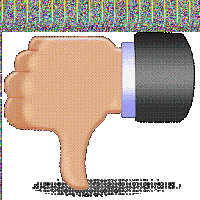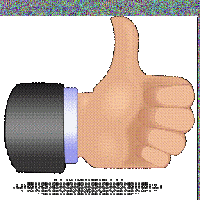Calorie Weigh-In: Should You Be Counting?

Americans, according to new findings from the International Food Information Council’s Food & Health Survey, have a serious calorie blind spot. The survey indicates that just 12% of us can accurately estimate our daily calories. Wendy Reinhardt Kapsak, a dietician involved in the survey, said it’s a case of being downright calorie-impaired. “There is confusion on all sides of the calorie equation,” she said. “People don’t know how many calories they should consume in a day, and even more are unclear how many they burn.”
We may have our head in the sand when it comes to calorie calculation, but how detrimental is it? If what we want is to get and stay healthy, are we really supposed to be counting calories?
Counting: The Cons
When it comes to counting, some of us are patently in Camp Con. After all, did cavemen count calories? Do the Chinese? Certainly not. Here are some of the arguments for trashing the tally:
1. Obsessing about calories can cause people to ignore the nutritional composition of their food and lose sight of other important food factors like fat content, sugar content, and glycemic index.
 2. Counting is about weight, and weight is not the point. Even if you stick to your calorie limit, in terms of volume, you may not be eating nutritionally-dense foods, and you may not be improving your health.
2. Counting is about weight, and weight is not the point. Even if you stick to your calorie limit, in terms of volume, you may not be eating nutritionally-dense foods, and you may not be improving your health.
3. Counting is flawed – it’s difficult to master and inaccurate.
4. Counting kills the motivation to eat healthy because it’s tedious and time-consuming.
5. If you are counting to lose weight, stop counting, and you’ll gain it back.
6. Counting calories means you’re focused on the wrong thing. You’re distracted from understanding why you eat, changing your thinking about sugar-salt-fat combos, and seeing the bigger picture of health and wellness.
Counting: The Pros
Camp Count begs to differ—you must know your caloric needs to maintain a healthy weight, they say, and that means doing a little math when it comes to what goes in and out. Here’s the “counter” argument:
1. Counting means you’re paying attention. Knowing what you need to take in and what you need to burn is the first step to waking up to your health and controlling your intake.
2. Counting is crucial to revealing the reality of outsized portions and diet-sabotaging drinks and snacks that hide behind guesswork. (Is your guesstimate off by 300 calories a day because of a forgotten soda? That’s a new pound every 12 days!)
3. Counting is actually easy and accurate with new iPhone apps and online software.
 4. Calorie overages can motivate moving. Want to eat a little more? Move a little more to reach that net goal.
4. Calorie overages can motivate moving. Want to eat a little more? Move a little more to reach that net goal.
5. Counting for a short period of time provides an education that helps estimating intake in the long term.
6. Counting can necessitate planning meals in advance and making food yourself instead of going out.
Calorie Counting or Calorie Conscious?
In a perfect world, calorie counters might go to the back of the class in favor of other ways to stay healthy that focus more on nutrition. But in the imperfect world of dangerous obesity rates, increasing morbidity due to preventable diseases, and waistbands stretching in every age group, there may be a legitimate reason to befriend the calculator, or at least shake its hand.
Dawn Jackson Blatner, a registered dietitian in Chicago and a nutrition blogger at dietchallenge.usatoday.com, said that her clients are not just calorie-confused – she calls them calorie-oblivious. Some simple calorie know-how would go a long way toward helping people lose or maintain their weight, she asserts, but she doesn’t teach calories counting. She teaches calorie consciousness.
Blatner favors simple journaling, even for a couple of weeks, as a key to opening the gates of consciousness when it comes to healthy eating. Writing down what you eat, or keeping track of it through a software application, can begin the process of understanding what’s going on in that space between your fork and your mouth. And, Blatner says, some apps like Mindful Eating, for example, fit the bill by urging users pay attention to the food, not the numbers.
Regardless of whether or not you are a member of Camp Count, you can do your part to defy the dismal data about calorie ignorance by getting over to Mypyramid.gov. There, you’ll find out the basics of weight management and dietary guidelines, and you can determine your calorie requirements based on age, gender and activity level.
By being one of the calorie-conscious rather than the calorie-confused, you’ll begin to get a handle on your own personal calorie and nutritional needs – and that’s pro-health no matter how you slice it.

